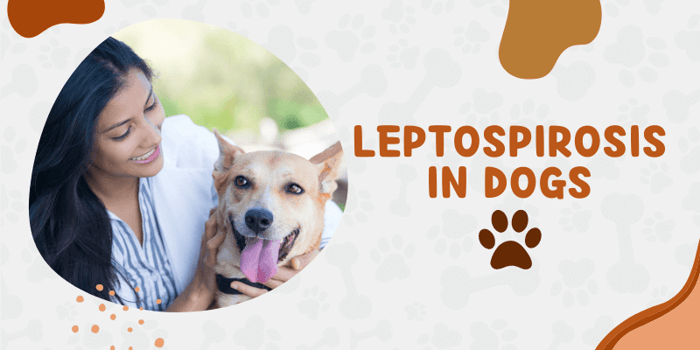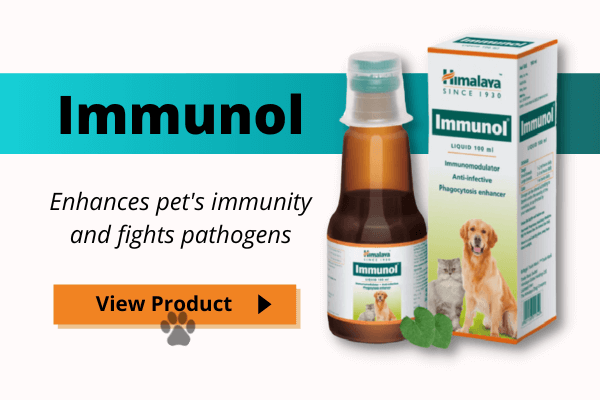Pets are highly prone to infections during the rainy season.
Irregular or no physical activity might reduce their immunity, which makes them easily susceptible to various infections.
Leptospirosis is one such common bacterial infectious disease that occurs during the rainy season.
Leptospirosis is a harmful zoonotic disease. It can be transmitted from an infected pet to humans.
Risk factors
Leptospirosis is most commonly seen in dogs; although knowledge of this condition in cats is limited, it is observed to be a rare and mild condition in them.
It majorly spreads through the urine of infected animals. Rodents and raccoons are also known to spread the infection.
The leptospiral bacteria can thrive in wet grass, soil, and water.
When your dog (or a person) comes in contact with infected urine, water, or soil, the bacteria enter through the skin or mucus membranes.

Symptoms of Leptospirosis
The symptoms begin to show up mildly within 2 days of exposure.
Common symptoms of leptospirosis include fever, vomiting, diarrhea, abdominal pain, loss of appetite, stiffness, drinking water and urinating frequently, weakness, and lethargy.
If not treated in the initial stages, the infected dogs can develop kidney and liver diseases, and in rare instances, their lungs can bleed.
If you notice any of these symptoms or find your dog sick, consult a vet immediately.
Some dogs might show mild symptoms, while others can get very sick and require immediate hospitalization and extensive treatment.
Prevention
Leptospiral bacteria are often found in contaminated water.
Dogs exposed to potentially contaminated water sources are at a high risk of developing this infection.
Prevent your pet from walking, swimming, and drinking water that may be contaminated with urine or wet grass.
Another preventive measure is to vaccinate your dog.
Guduchi (Tinospora cordifolia), a pet-friendly herb
Guduchi, a climbing shrub, has found its place in Ayurveda because of its numerous medicinal properties such as antioxidant, anti-inflammatory, anti-aging, antipyretic, antidiabetic, antibacterial, and immunomodulatory properties.
Chemical molecules in Guduchi strengthen the immune system and help fight disease conditions such as infection or cancer. Guduchi thus helps improve the body’s resistance against various harmful microorganisms.
Guduchi is an ingredient of Immunol, a product from Himalaya Wellness Company. Immunol enhances your pet's immune system and helps fight harmful microorganisms.
Source: All About Pets. Leptospirosis in Dogs. 2020;1(1):8.
Check out the Pet Care section for more posts on pets' health, diet, and so on.
Explore the Himalaya Wellness blog for more useful articles.
 Himalaya Global Holdings Ltd. (Our Parent)
Himalaya Global Holdings Ltd. (Our Parent)






